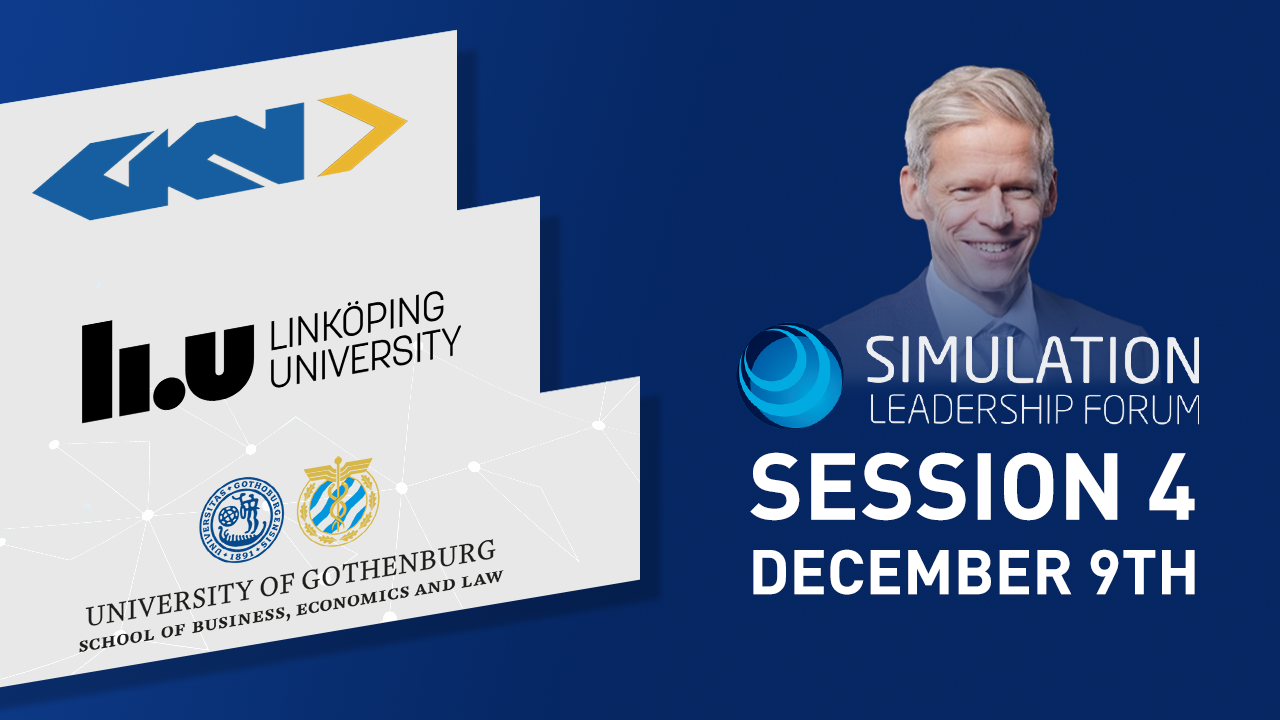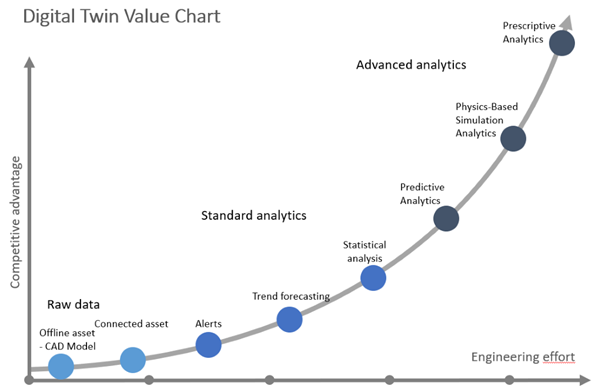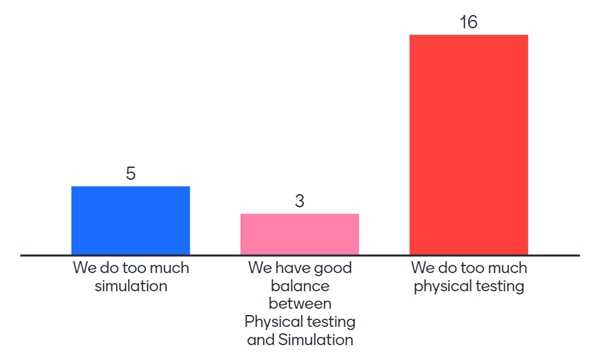GKN vs LiU vs GBS – Simulation Leadership Forum

Simulation Leadership Forum is the only virtual forum for technology executives and thought leaders to discuss and share cutting edge technology strategies related to simulation designed to win in the rapidly changing environment!
In the past, the Forum has been limited to an annual, physical live discussion forum. With the ongoing situation, we are shifting to a virtual forum where we offer an opportunity to gain access to brilliant industry and technology insight without leaving your office or the comfort of your home!
It felt like we just started but now the final episode of the 2020 Simulation Leadership Forum is over… And as we are close to Christmas I ran out of time for blog writing, but with a final push before checking out, well here we are.
We were happy to have signed up Thomas Gustafsson from GKN Aerospace for this season-ending episode, and in addition, Matts Karlsson from Linköping University joined in as he has always been doing since SLF started in 2013. The lineup was concluded by Mattias Johansson, who was working as our summer student in 2019 and then continued his simulation maturity research with a Masters’s thesis on Simulation management.
The first time I heard about GKN Aerospace (or Volvo Aero at that time) was more than 20 years ago when they built a PC cluster to run their CFD simulations. That was quite some time before cluster utilization for large scale simulations started to make an impact.
Thomas Gustafsson leads the Analysis and Verification team at GKN, and has been a central part of one of the most fascinating simulation projects I have heard of since joining the world of simulation: The GKN Life tracking system (LTS). In essence, this is a Digital twin, proposed back at the turn of the millennium and realized in 2012, way before the digital twin hype started. But not only that, when looking into the Digital twin value chart it is clear that LTS represents a digital twin at the very top end of the chart:

It’s a compelling story, and what’s more, GKN managed to get business value out of their technology way before it was launched. Referring to the chart above again, and the fact that LTS represented innovation on so many levels – technology, business, organization, customer interaction and so on, it proved that combining GKN top engineering track record with the potential value proposed to GKN customers was so convincing, that GKN could sign new contracts way before the rollout in 2012. I suggest that you listen to the whole story, see the recording here!
Thomas also suggested a poll, as at one stage they experienced that they were relying too much on simulation. In line with previous SLF sessions, most of the audience experienced the opposite, i.e. that they relied too much on physical testing. But as can be seen in the picture below, the story among the SLF audience is mixed.

As always, Matts Karlsson from Linköping University shared some of his front line research insights. It is difficult to describe so you better watch when Matts present how they managed to run a CVD reactor research project with 10 orders of magnitude of scale difference. Link to the recording!
Obviously, such a project requires a lot of silos to be bridged and ergo, one of the key requirements to successfully run such a project is to understand each other. That led us into a discussion on the Formula student project, more about that in 2021!
Finally, Mattias Johansson presented his Masters thesis on Managerial Influence on Simulation Driven Product Development. It is encouraging to see that much of his research is backing up what we have concluded in previous SLF episodes, and if you want to dig into the details, you can find Mattias thesis here.
We got the chance to conclude the episode with a short panel discussion, the whole discussion can be found here. I suggested four main takeaways from the 2020 SLF season, namely
Language matters
Always look for short term wins
Ownership determines the outcome
Coalitions make a difference
We did not really try to rank them and agreed that these are important points, however, we will look for further takeaways before we start the 2021 season. Matts concluded with a comment about the new normal, where the digital product is followed by a physical twin. Indeed an intriguing thought and a nice way to finish SLF 2020!
After four episodes, we now take a break for Christmas. We have received interesting suggestions for 2021 speakers that we are now following up upon, and we will keep you posted right after the new year.
Also, a final reminder to complete the quick simulation maturity assessment if you did not do that before. The assessment can be found here: https://smi.edrmedeso.com/ Use code: wobonzn8
If you want to assess your company separately, we can set up specific assessments just for you. Feel free to reach out to me at Marcus.oledal@edrmedeso.com and we’ll sort it out.
With that, the premiere season is closed, and we look forward to the 2021 simulation leadership season! The plan is to get started again on January 27, so stay tuned!
